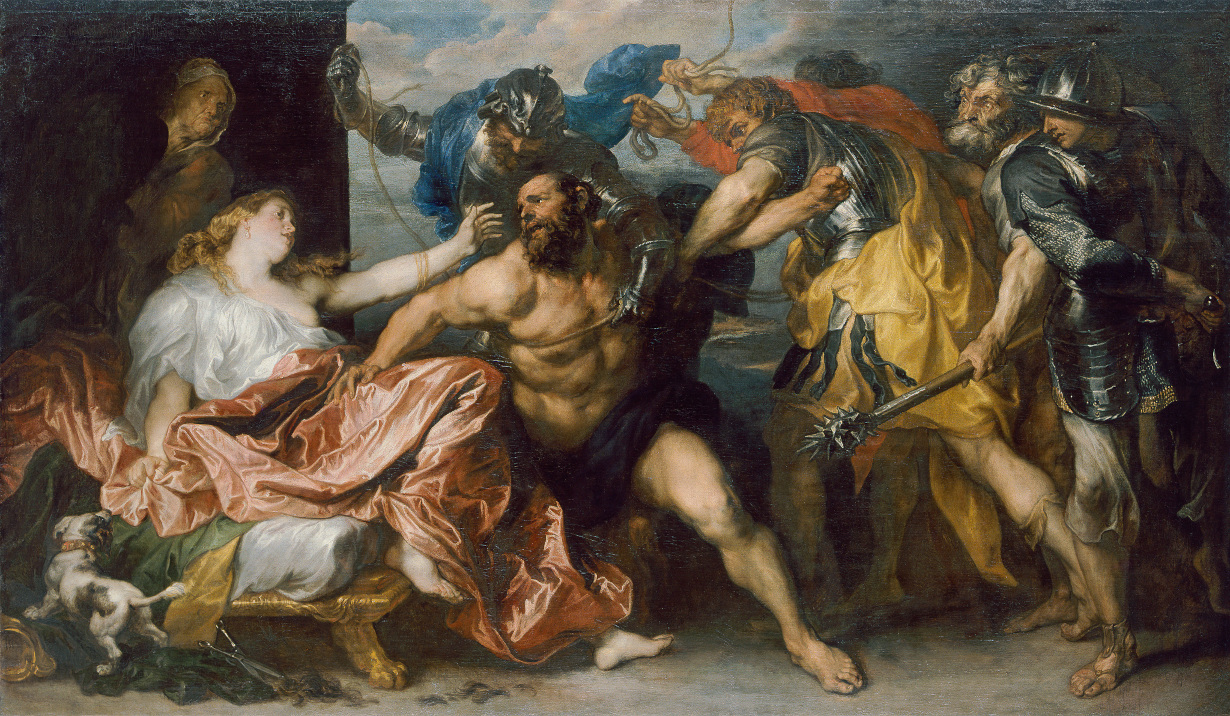Obviously, a primary source from this culture and quite
possible the only thorough way of looking at ancient Hebrews in by use of the
Bible. Biblical stories themselves demonstrate the basics that women and men
are clearly treated as separate from one another. For instance, an attribute of
being a 'good woman' (that is also shared with some of the other cultures we've
discussed in class) is sexual purity. Women
are regarded as wives and mothers, and any sex outside of these predetermined
parameters are strictly against God's rules and the societal expectations of
the people. Modern feminist readings interpret this as an act of ownership -
these women are not allowed to participate in sex unless their father or
husband so dictated that it be so (Streete 210). It would appear as if women,
while simultaneously being praised for being important in her duties as
child-bearer and caretaker, were also somewhat regarded as a property and
bargaining tool.
(Sexual purity is still regarded as a good and admirable attribute in today's modern Christianity and Judaism. Purity rings - like the one shown above - represent this goal that the Hebrews cherished in women (purityrings.com).)
Alice Bach mentions the Biblical story as a way of
representing the role of Hebrew women in the event of a husband's death. This
is a reference to the Biblical story of Ruth, who must rely on the generosity
of her husband's brothers to support her (Bach, xx). Hebrew women were not
allowed to own property nor were there many methods of occupation, which goes
more into depth on the truly limiting role of women in Hebrew culture.
Along with being property in a sense, Hebrew women were
praised for their ability to bear children. In terms of having specific duties,
this one was a female-exclusive one. However, in a time where becoming pregnant
was a life-threatening affliction (Bach xx), it is clear to see how the
privilege of fulfilling the role of mother might not be considered
advantageous.
Further along these lines, Streete provides examples of
women in the Bible using tools they had on hand (aka, feminine wiles and
whatnot) to get their way. Women mentioned in the Bible that do such a thing
would include Jezebel, Delilah, Eve, and many more (Streete 211). So, perhaps a
role of women is one of leading men into deviance.
(This 1630 painting by Anthony Van Dyck entitled Samson and Delilah depicts the moment in which Delilah - a temptress and love of Samson - cuts the Biblical hero's hair (the source of Samson's incredible strength), making him powerless against the ones attacking him.) (Van Dyck)
However, while a modern audience may view this as oppressive
and stifling, some evidence points that perhaps the women of ancient Hebrew
culture were still supposed to be
treated as equals in this society. According to the God of the Hebrews, Woman
is the mother of all living and is a partner with man - not necessarily
subservient to (as some accounts in the Bible suggest). This would indicate
that perhaps while women were meant
to be regarded as equals, this was not actually carried out in practise (Brouer
24).
In summary, the roles of women in Ancient Hebrew culture
were ones of being mother and wife - to the point where one may consider them
simply property in a way. This contrasts with the Biblical original intent of
women, obviously, so this may indicate that their stereotypical role of solely
being the family caretaker was also not set in stone.
Works Cited:
- Bach, Alice. Women in the Hebrew Bible: A Reader. Routledge, 1998. Print.
- Brouer, Deirdre. "Voices of Outrage Against Rape: Textual Evidence in Judges 19." Priscilla Papers 28.1 (2014): 24-28. Academic Search Premier. Web.
- PurityRings.com. Purity Ring - Girls Sterling Silver "LOVE WAITS" Cross. Digital image. PurityRings.com. N.p., 2014. Web.
- The Strange Woman: Power and Sex in the Bible by Gail Corrington Streete. Review by: Mayer I. Gruber. The Jewish Quarterly Review, New Series, Vol. 92, No.1/2 (Jul. - Oct. 2001), pp. 210-215.
- Van Dyck, Anthony. Samson and Delilah. 2005. Photograph. artbible.info Web.


Audrey, I found your blog post on the role of women to be interesting. The idea of sexual purity being a sign of men owning women is not a thought that I have ever had before. However, I tend to disagree with the idea that the Hebrew men were intentionally treating women as less than equal in this sense. In Genesis, the Bible says that women were created out of Adam’s side and were to be equal. But women were inherently different from men. According to the Christian and Hebrew faiths, God graced women with the ability to produce children and carry them for nine months. This gives women a bond with their children that men will never have. I also feel that the sexual purity aspect of the Ancient Hebrew belief came more out of following the direct words of God rather than men trying to own women. In Exodus, God gave Moses the Ten Commandments, and one of them was “Thou Shall Not Commit Adultery”. This places a direct emphasis on abstaining from this behavior, and since the command comes from God it is difficult for believers to argue with it. In their minds, their soul is at stake. However, I do feel that in today’s society much of this is different. Women are still inherently different, but they should be given all of the same opportunities has men. I also feel that today’s society has much less emphasis on sexual purity and focuses more on moral purity.
ReplyDelete